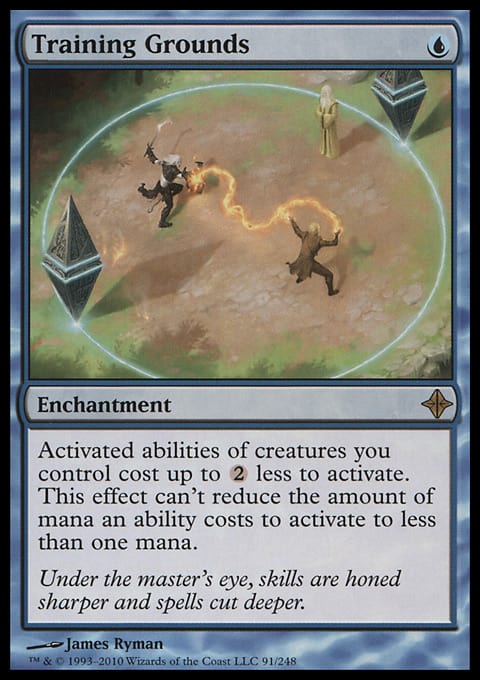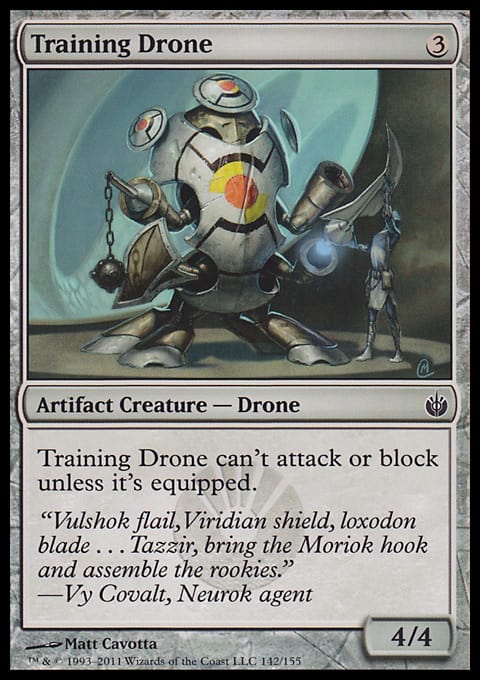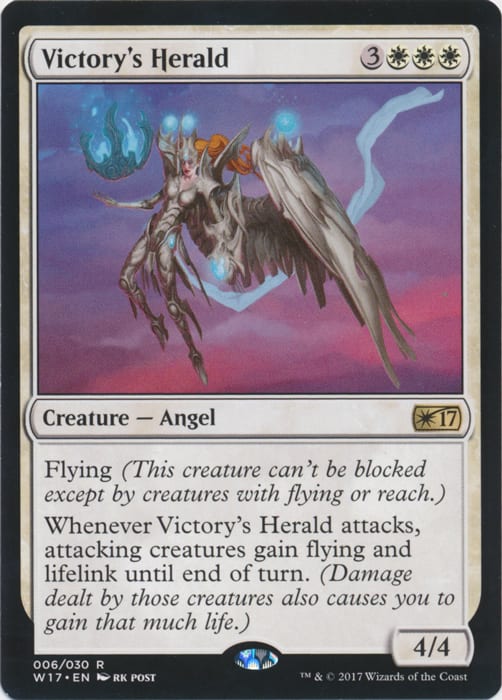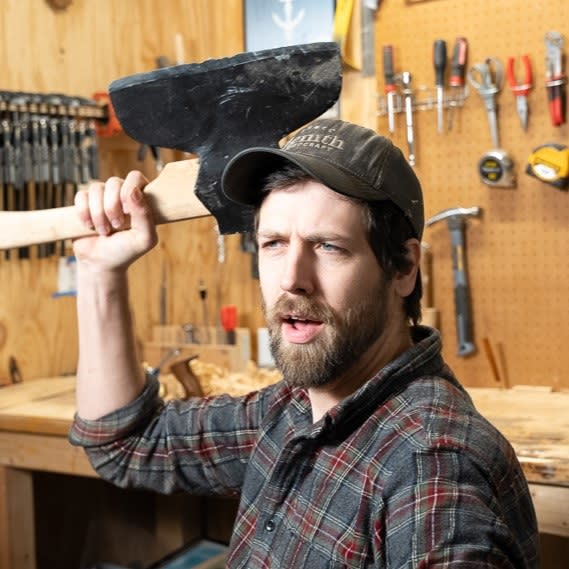I normally attempt to appeal to a broad audience in most of my articles, but this one is aimed at a more narrow demographic. If your goal is to be a great player, a professional player, or the best player, then this will likely be of some value to you. If this isn’t you, I hope the principle here still resonates with you and you can apply it to a different area of your life.
I was going to write about winning the SCG Atlanta Standard Open, but it feels like my articles have gotten a bit repetitive as of late. I put up a good result at a tournament, talk about the deck I played, then emphasize how important hard work and preparation were in achieving said result. But there are few reasons I don’t want to do that this week. The first one is the fact that I don’t really know what Mardu Vehicles, the deck I used to win the Open, is supposed to look like at this point in time. I’m normally confident in my ability to stay ahead of and predict the metagame, but I’ve lagged behind it a bit this past week. The metagame I designed the original list for was distorted due to the time constraints players had to test for the event. ![]()
![]() and Mardu occupied a much larger space in the metagame than they rightfully should have. Since then, we’ve seen strategies such as Aetherworks Marvel, Zombies, and
and Mardu occupied a much larger space in the metagame than they rightfully should have. Since then, we’ve seen strategies such as Aetherworks Marvel, Zombies, and ![]()
![]() Control being played to success online. I spent the past week testing the new Limited format in preparation for Grand Prix Richmond, so I honestly don’t really know what changes should be made to the deck in order to combat these archetypes. So instead of just posting an outdated decklist/sideboarding guide and preaching some empty message about working hard, I’m going to break down exactly why practice is an essential component of success in this game. The importance of putting hours into the game has been a recurring theme in my recent articles, but I’ve never taken the time to thoroughly explain exactly why it’s so important.
Control being played to success online. I spent the past week testing the new Limited format in preparation for Grand Prix Richmond, so I honestly don’t really know what changes should be made to the deck in order to combat these archetypes. So instead of just posting an outdated decklist/sideboarding guide and preaching some empty message about working hard, I’m going to break down exactly why practice is an essential component of success in this game. The importance of putting hours into the game has been a recurring theme in my recent articles, but I’ve never taken the time to thoroughly explain exactly why it’s so important.
Why You Should Practice
Achieving sustained success in Magic is incredibly difficult. The game is challenging, ridden with variance, and tournaments are structured in a way that only the top 1% succeed. Failure is inevitable. But despite all of this, it is still possible to win on a semi-regular basis. Every tournament presents you with a multitude of decisions; and, if you make enough of them sufficiently well, there’s a real edge to be gained. In a large enough sample size, variance evens out and the edges you gain can start to add up. The problem with this is that it’s much easier said than done. Based on the sheer number of decisions you have to make (from deck-building, to drafting, to mulliganing, to playing) it would be impossible for some of them not to be made poorly, even if they were straightforward. But combined with the fact that they’re often quite complicated, makes mistakes commonplace in Magic.
This is where that old adage comes in, “practice makes perfect”. It’s as corny as it is true. The more you play, the better you get. You start to recognize situations and patterns, and they become much easier to work through. There are only so many cards that see play in each format. When you’ve put countless hours into those formats, you’ll notice that games often play out in a similar manner. And when you’ve been in those situations enough times, you can easily discern what is and isn’t a good play. From there, your understanding of the game starts to develop and it even becomes easier to work through situations that may be foreign to you. It’s not limited to just improving your play either. When you play a deck or format enough, you get an idea for how cards interact. This allows you to tune decks, develop sideboard plans, and figure out what matters in Limited formats. Decisions that were once quite difficult for you to make, can be made with relative ease. When you know what 75 to play, have your pick order down, and are just playing well overall, you can really start winning a large percentage of your matches.
How You Should Practice
Something that should be mentioned more often, though, is that just playing hours on end isn’t really enough; or, at least, you might be making it much harder on yourself than it needs to be. Your mindset while practicing can be just as important as the quantity of practice. It’s crucial that you’re analytic and reflective while practicing, and you’re actively thinking about what you can be doing better. I’ll admit I’m definitely guilty of not doing this at times, and it has lead to a flaw in my game that I’ve been trying to work on. Because I’m sometimes more focused on quantity over quality, I find myself relying on my ability to recognize common gameplay patterns as a crutch. This results in me struggling to figure out what I should be doing in unique situations, like convoluted board stalls. If I were more attentive in my testing, my game would almost certainly be more well rounded. I imagine this is a common pitfall among other players and something to be conscious of in the future.
Another thing to be wary of in testing is being too results oriented. If a deck wins, it’s good; if it loses, it’s bad. If a play worked, it was good; if it didn’t, it was bad. It’s easy and natural to trust results, but it’s rarely ever this simple. It’s imperative that you dissociate yourself from your results. Try to identify why a deck is losing or why a play resulted in an unfavorable outcome. Sometimes you’re going to make a good play and lose, and you’re going to play the right deck and lose. Conversely, it’s also important that you’re not dismissing your results too lightly. If a play you made directly lost you the game, there’s definitely a non-zero chance it was a bad play and you should analyze it as such.
Why You Need to Practice
Like any profession, especially those that are inherently skill based, it’s really hard to be one of the best. People are often deterred from trying to be athletes, entertainers, musicians, or something of the sort just because of how likely they are to fail. And while it’s obviously not to the same extreme extent, the majority of those who want to be one of the best players in the world will fail as well. It’s a harsh reality, but it’s true. For every person that wants to play on the Pro Tour, win an Open, win a Grand Prix, or become World Champion, only a very small minority will ever get to. This is where practice comes into the mix. You can’t control if you have an innate talent for something. You can’t control how good anyone else is at this game. The only thing you can do is put the work in and hope it pays off.
Results of Practice
I was always the smartest kid in my class, and I’ve put a lot of time and effort into improving as a player. It seems like a formula for success, but my story isn’t unique in the slightest. There are a ton of people who play this game that are much smarter than me, and have been playing the game for much longer than I have. There are a ton of players that are just better than me. I’m not really sure why, but it hurts for me to even say that. It’s the very obvious truth, and I have no delusions about being better than I am. But the same reason why it’s difficult for me to admit that, is the same reason why I’ve been so preoccupied with the topic lately. I want to be great at this game.
I started treating this game like a job around the end of last year. My goal wasn’t anything too ambitious, I just wanted to see if it was something I could make enough money in to get through school. I figured if I started taking Magic more seriously, then I could maybe make a decent amount of money off of articles, streaming, tournament winnings, selling tix, and sponsorships. I guess at some point between then and now, my competitive nature took over. I don’t know if it’s possible for me to take anything as seriously as I’ve been taking Magic without wanting to be the best at it. I’ve been putting full-time job hours into Magic for the past few months now; and, despite it only being early May, I’ve arguably already had my most successful year. Since the beginning of this year, I’ve only played in thee Opens and my record is 40-5 (excluding byes) with a Top 8 and a win. I’ve also Top 8’d a MOCS Playoff and won an online PTQ, and I attribute all of my recent results to the effort I’ve been putting in. So, while I apologize if you're tired of hearing me speak on the subject recently, the main reason why I write articles is to help out other players. I really can’t stress enough how important just playing is if you’re trying to improve as player.




























